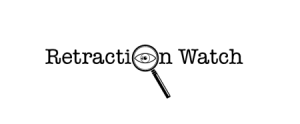
A high-profile plant scientist who has been racking up corrections and retractions at a steady clip has had another paper — this one from Science — retracted.
The retraction, of a paper that had been previously corrected, is the eighth for Olivier Voinnet. According to the notice, the correction did not address all the figure problems with the paper, which “cannot be considered the result of mistakes.”
Here’s the notice in full: Continue reading Eighth Voinnet paper retracted — this one from Science


